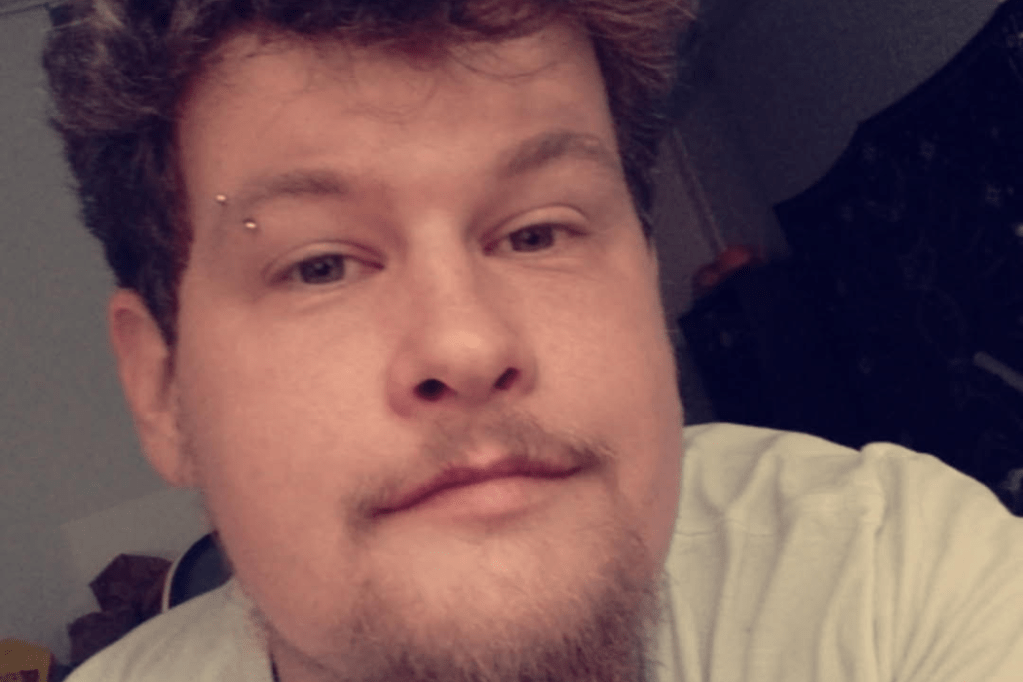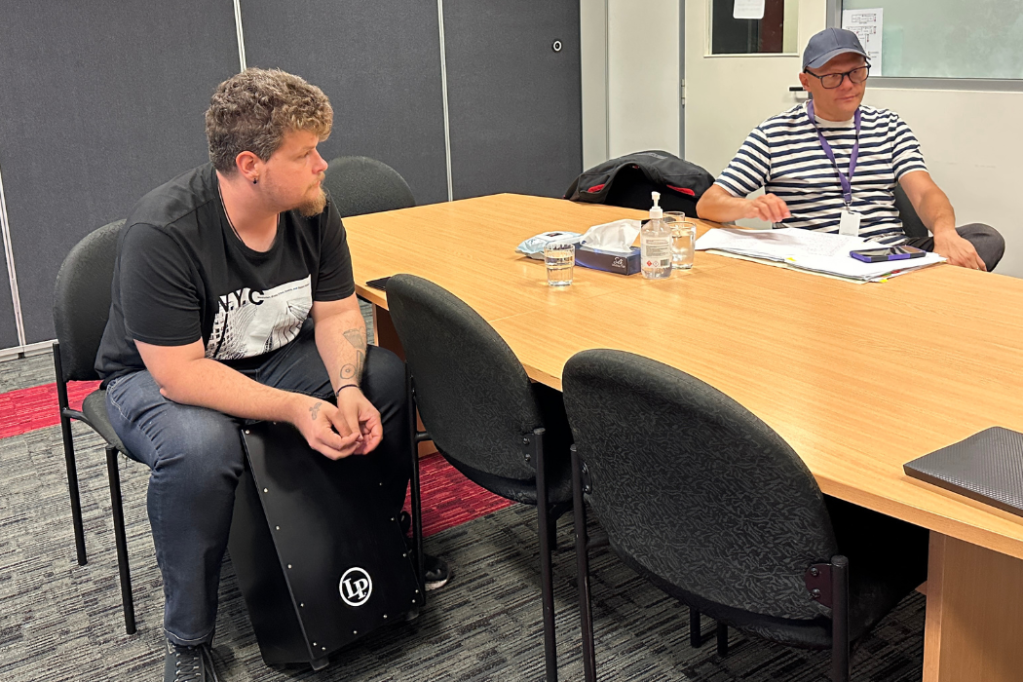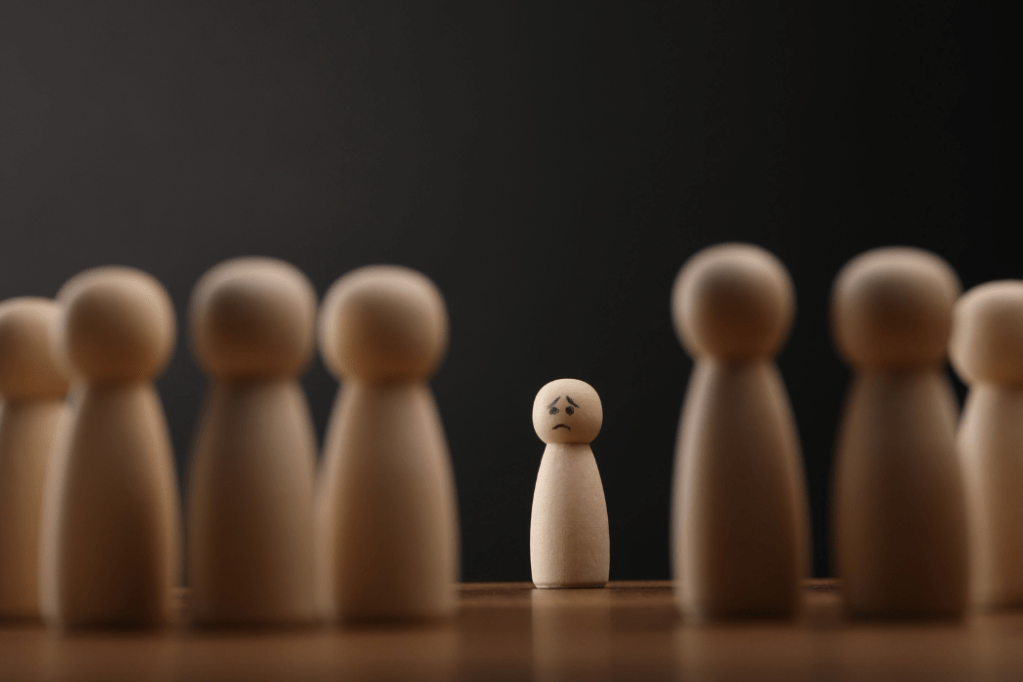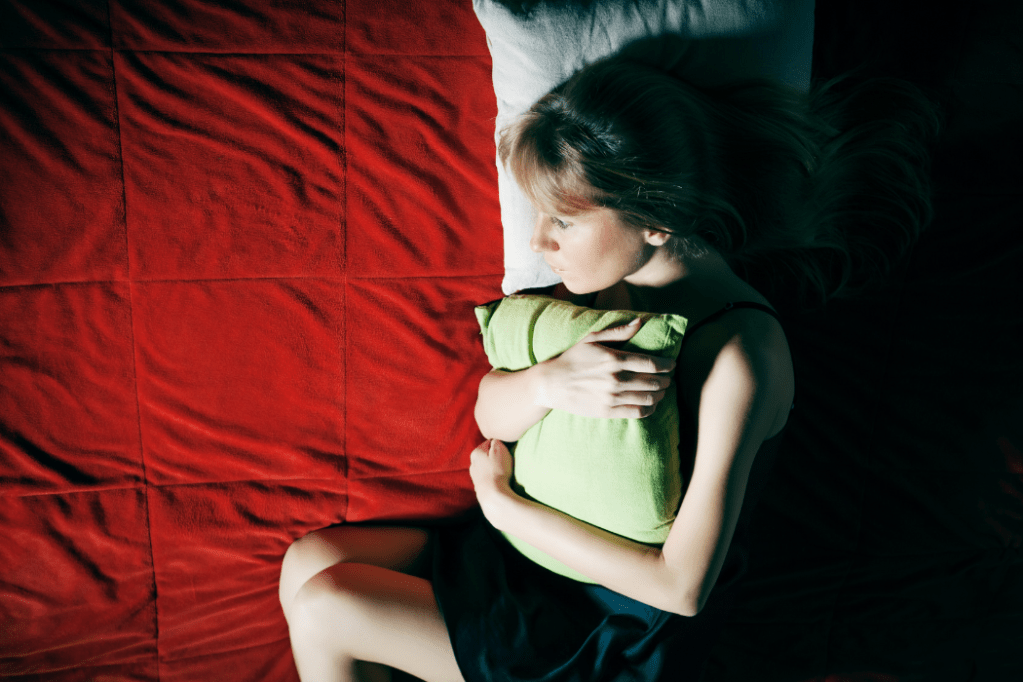Nine in 10 young South Australians experience loneliness. Haydon was one of them – until a small interaction helped him turn things around.
Even with friends, Haydon felt isolated and hopeless – until a small online community helped him reach out.
Here’s how a few kind strangers, a program called Community Connections, and one very persistent support worker helped him rebuild his confidence (and even join a band).
A phone call that changed everything
Haydon Grigg, 29, still remembers the night he picked up the phone and called a friend. He was overwhelmed, spiralling, and had hit a point where things felt unmanageable.
“I was on the verge of killing myself,” he says. “I remember that call vividly. If it wasn’t for that call, I wouldn’t be where I am now.”
That call didn’t fix everything. But it helped him reach out, get support, and start rebuilding his confidence – one step at a time.

The invisible kind of loneliness
From the outside, Haydon seemed like he had it together. He had friends, cracked jokes, and came across as calm and collected. But underneath, he felt adrift.
“I was stuck in a self-doubt bubble,” he says. “My brain would just tell me I didn’t really have friends, or that they didn’t actually like me.”
Loneliness, that persistent sense of not belonging, stayed with him – even when things on the surface seemed fine.
Growing up, Haydon had taken on a lot. “I was the glass child,” he explains – the one who quietly copes while a sibling with complex needs receives most of the family’s attention. “I didn’t get to be a kid the way I should have.”
School was tough. “Bullying, teachers who didn’t believe in me – it all chipped away at my confidence.”
After leaving school early and dealing with a string of setbacks, Haydon found himself isolated, anxious, and unsure what the future looked like.
“I was existing day to day,” he says. “I couldn’t see the point of anything. I was just… stuck.”
TikTok, Esther and finding his people
We don’t often hear this, but social media helped save Haydon’s life.
It started with him posting a few funny skits on TikTok as @wholesombean – not about mental health, just things that made him laugh. But the laughs turned into likes, then comments, then friendships.
Eventually, he found a small community of people who “got” him.
“I was one of the lucky ones,” he says. “They saw I was in one of my down periods and said, ‘Look, go get help.’”
Esther, a woman he met online, became like a second mum. “She was the one who said, ‘You need to move out. You need to help yourself first.’ And she was right.”
With her encouragement, Haydon went to the Urgent Mental Health Care Centre – which connected him to a social worker, who eventually referred him to the Community Connections Program (CCP).

How Community Connections helped
Haydon was assigned a support worker, Matteo, through the CCP – and for him, that made all the difference.
“He helped me get a place to live. He helped me get out of my social bubble. He got me into activities with other people – kayaking, hiking, even playing drums in a band,” Haydon says.
The support wasn’t just practical – it was personal, and it lasted well beyond the official 12 weeks.
“I still kept in touch with Matteo after the program ended. He helped me with food when I was struggling. He was just there. And I know I could call him right now, and he’d help me again.”
More than anything, it was the connection that counted.
“With Matteo, I felt understood. I was ready to take risks. That’s what helped me get to where I am now.”
The difference the right support makes
CCP gave Haydon the support to get out of his comfort zone and “out of his own head”. He expanded his circle of friends – and even met his now-partner on one of the early CCP hikes.
Matteo also played a key role in helping Haydon take the huge step of moving out of his parent’s home and into Common Ground – an award-winning community housing complex.
“That move changed everything,” Haydon says. “When I first moved in, I called a friend crying because I didn’t know what I’d got myself into. But I’m beyond happy now. My bubble’s expanded. My confidence has come back.”
These days, Haydon’s volunteering at the RSPCA – and they’re training him to become an assistant manager.
“They’re taking me step by step,” he says. “It’s the first time I’ve felt like there’s a real path forward.”

Loneliness isn’t rare – or harmless
Sadly, Haydon’s journey reflects what many young South Australians are living through right now.
A December 2023 report showed that 66 per cent of South Australians felt lonely often or sometimes – and for young people, that number soars to 97 per cent for those aged 25-29, and 91 per cent for 18-24 year-olds.
Loneliness doesn’t just feel bad – it can be deadly. Left unaddressed, it increases the risk of premature death by 26 per cent, and is linked to higher rates of heart disease, stroke, depression, anxiety, self-harm and suicide.
And yet, it often hides in plain sight. As Haydon puts it: “There was a part of me that always used to say, ‘They’re not actually your friends.’ Even when I wasn’t alone, I still felt alone.”
Small moments, big difference
That’s why this Loneliness Awareness Week (4-10 August) is all about the power of moments that matter – the small, everyday interactions that help people feel seen, valued and connected.
For Haydon, it was things like a phone call, a shopping trip with a friend, or a shared laugh on TikTok.
“Everyone needs a little push,” he says. “It doesn’t have to be a big push – just something small to spark something.”
Want to help someone who seems a little off? Say hi. Ask how they’re doing. Invite them for a walk. Send the meme.

Feeling lonely? Help’s on hand
Feeling a bit stuck yourself? If you need support for loneliness, it’s there. You can:
- Explore the Community Connections Program to see if it’s right for you.
- Hit up the Loneliness Awareness Week website for tips, resources and stories.
- Join the conversation on socials with #MomentsMatter.
If you or anyone you know is struggling, make sure to reach out to one of the mental health services available 24/7:
LifeLine: 13 11 14
Beyond Blue: 1300 22 46 36
SA mental health services register
















